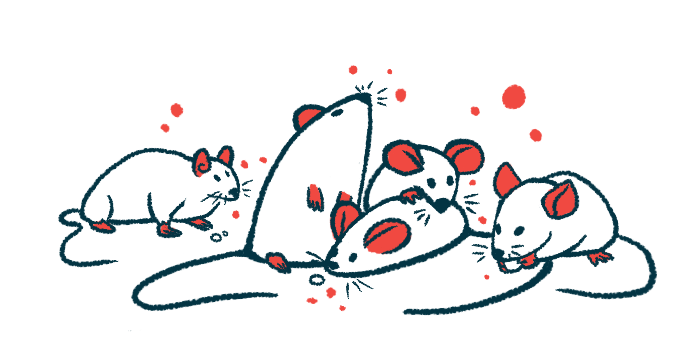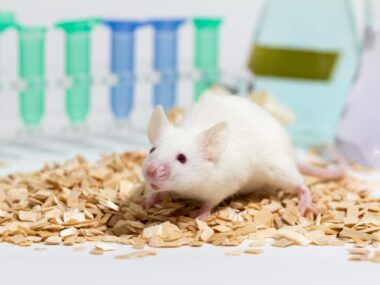NKT cell activators potential SLE treatment, preclinical data show
GRI-0124 eased inflammation, prolonged survival in SLE mouse model
Written by |

GRI Bio announced what it called “encouraging preclinical data” on two systemic lupus erythematosus (SLE) treatment candidates. SLE is the most common form of lupus.
GRI-0124, an oral small molecule being developed to activate natural killer T-cells, or NKT cells, and keep autoimmune attacks in check eased inflammation and prolonged survival in a mouse model of SLE, the company said.
The company’s second small molecule candidate, GRI-0803, is similar in structure to GRI-0124 and has been found to be safe in preclinical studies. The way GRI-0803 is taken up and eliminated from the body supports the use of once-daily dosing in future studies.
“There remains a significant unmet need for safe and effective treatment options for SLE as current treatments are limited, consisting primarily of immunosuppressive therapies,” Vipin Kumar Chaturvedi, PhD, GRI Bio’s chief scientific officer, said in a company press release.
GRI-0124 and GRI-0803 appear to “have the potential to target earlier in the inflammatory cascade to interrupt disease progression,” said Chaturvedi, who presented the data at the 14th International Congress on Autoimmunity, held May 17-20 in Ljubljana, Slovenia.
The company plans to file an investigational new drug (IND) application to move GRI-0803 into a Phase 1a/b clinical study, pending validation of its safety profile and current Good Manufacturing Practice (cGMP) operations. Topline data are expected this year.
“We remain encouraged by GRI-0803’s potential and are working in earnest to validate bioanalytical methods, complete cGMP manufacturing, and complete toxicology studies in order to file our IND for GRI-0803 in the second half of 2024,” Chaturvedi said.
Overactive cells
Autoimmune attacks in lupus are caused by antibodies that immune B-cells produce against tissues, driving a lasting inflammatory response. B-cells also factor in lupus nephritis, which occurs when the attacks target the kidneys and cause damage.
Another immune cell type called invariant NK T-cells, or iNKT cells, usually keep autoimmune attacks in check by inducing immune tolerance — that is, by teaching the immune system at an early stage not to recognize the body’s own tissues as a threat.
In autoimmune diseases, iNKT cells themselves appear to go haywire. While the number of iNKT cells is often increased in diseases marked by long-lasting inflammation, type 2 NKT cells may reset the immune response, in part by controlling the overactive iNKT cells, according to the company.
Kumar’s earlier work showed that both iNKT and type 2 NKT cells build up in the kidneys of BWF1 mice, which spontaneously develop symptoms mimicking those of SLE. In these model mice, activating type 2 NKT cells reduced inflammation in the kidneys.
Research showed that iNKT cells from the blood of lupus patients, when compared with healthy individuals, released significantly higher levels of interferon and transforming growth factor, two signaling proteins that help mount the inflammatory response, suggesting iNKT cells were overactive.
In another mouse model of SLE, called NZBWF1, iNKT cells build up in the kidneys as the disease progresses over time. Similar findings were observed for type 2 NKT cells. When grown in the lab, these type 2 NKT cells remained responsive to an activation cue.
When researchers treated NZBWF1 mice with GRI-0124, type 2 NKT cells released significantly higher levels of interferon than type 2 NKT cells from placebo-treated mice. In turn, activation of iNKT cells was inhibited by GRI-0124.
Besides lowering the levels of a number of pro-inflammatory signaling proteins, treatment with GRI-0124 also reduced the infiltration of several types of immune cells, including B-cells and T-cells, in the kidneys.
In NZBWF1 mice, once-weekly dosing of GRI-0124 also reduced inflammation and scarring caused by lupus nephritis. It also reduced proteinuria (high levels of protein in the urine), a sign that the kidneys may be damaged, and extended animals’ survival.
GRI-0803 — for which the company holds patents covering its composition and use, ensuring exclusive market rights until 2038 — is a second-generation NKT cell activator derived from GRI-0124. Its pharmacological profile is compatible with once-daily oral administration dosing, according to the company. So far, no toxicology issues have been identified.
Overall, the findings support the use of GRI-0124 or GRI-0124 as activators of NKT cells.






